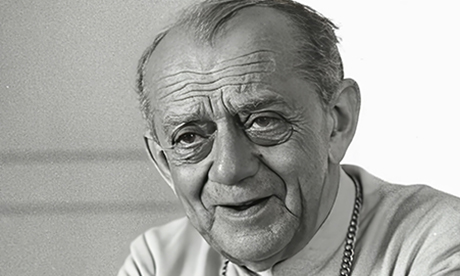The Vatican is advancing the cause for sainthood of Servant of God Hélder Câmara, Archbishop of Olinda and Recife (Brazil).
He may soon be called “venerable”.
Twenty-three years after his death, Câmara is one of the emblematic figures in defence of the homeless, the jobless and the landless.
This wasn’t always the case though.
The Archbishop was one of the Brazilian bishops’ conference founders. He was named to Olinda and Recife in 1964, three weeks before the military coup that started the 20-year dictatorship in Brazil began.
Days after the coup, he released a manifesto supporting the Catholic workers’ action in Recife.
The new military government accused him of being a demagogue and a communist. He was forbidden to speak publicly.
He did anyway – and exposed the regime for what it was.
“If I give bread to the poor, everyone calls me a saint. If I show why the poor have no bread, they call me a communist and a subversive,” Câmara is quoted as saying during that time.
There were two main lines of work in the social and political spheres.
One was the defence of social justice in the most unequal continent in the world.
The other was the confrontation with the dictatorships both in his country and in other countries around Brazil.
He remained a strong critic of the regime, denouncing human rights violations committed by police authorities. He wrote several books on the topic.
In 1972, he was nominated for the Nobel Peace Prize. By 1985, when he retired, he was credited with having organised more than 500 base ecclesial communities, which use Bible study and prayer to address social and economic problems.
The “favelas” in his heart
After transferring to Rio de Janeiro in 1936 until his death, Câmara’s concern for the lives of those who inhabit the misery belts in Brazil (the “favelas”), was the hallmark of his pastoral action.
In his capacity as auxiliary bishop of Rio de Janeiro (1952) and later, as archbishop of Olinda and Recife (1964-1985), he had enormous media repercussions. There were several occasions when the military regime wanted to end his life.
In 2015, 16 years after his death, the process of his canonisation was opened. Later, with the Holy See’s authorisation, he received the title of Servant of God.
In December 26, 2017 he was declared a “Brazilian Patron of Human Rights” by a federal law.
This was ratified by the State of Pernambuco where it led to carry out most of his ministry.
Asked why he had to renounce the apostolic palaces and go to live in the neighbourhoods of the poor, Dom Hélder (as Câmara was commonly known) replied: “There are miseries that cry out, before which we have no right to remain indifferent”.
The diocesan beatification process for Câmara began in 2014. In 2015 he received the title of “Servant of God”.
For many Brazilians, the persecuted and now the vindicated Câmara’s championship of human rights means he can also be the champion of a poor Church and for the poor.
Source
